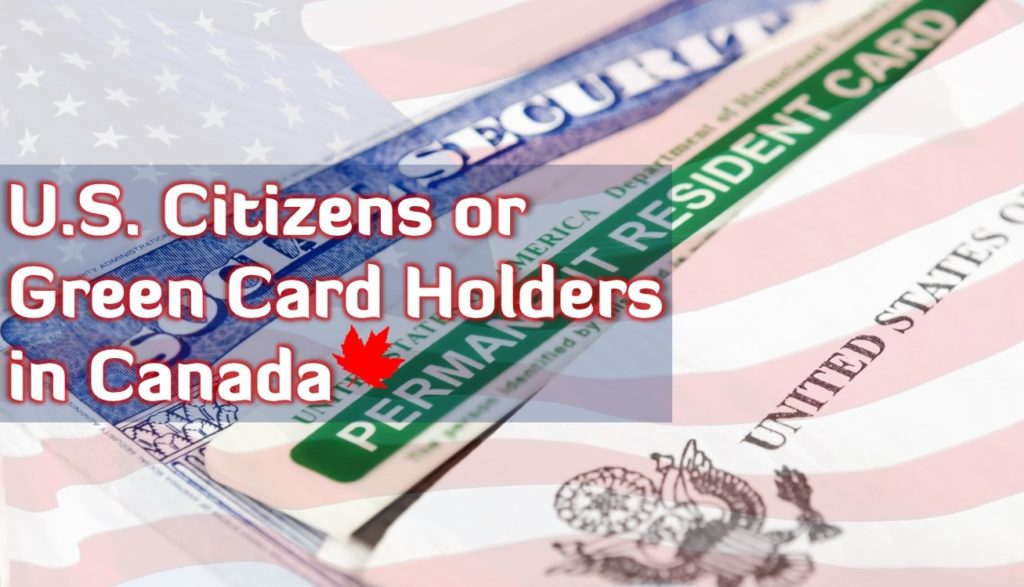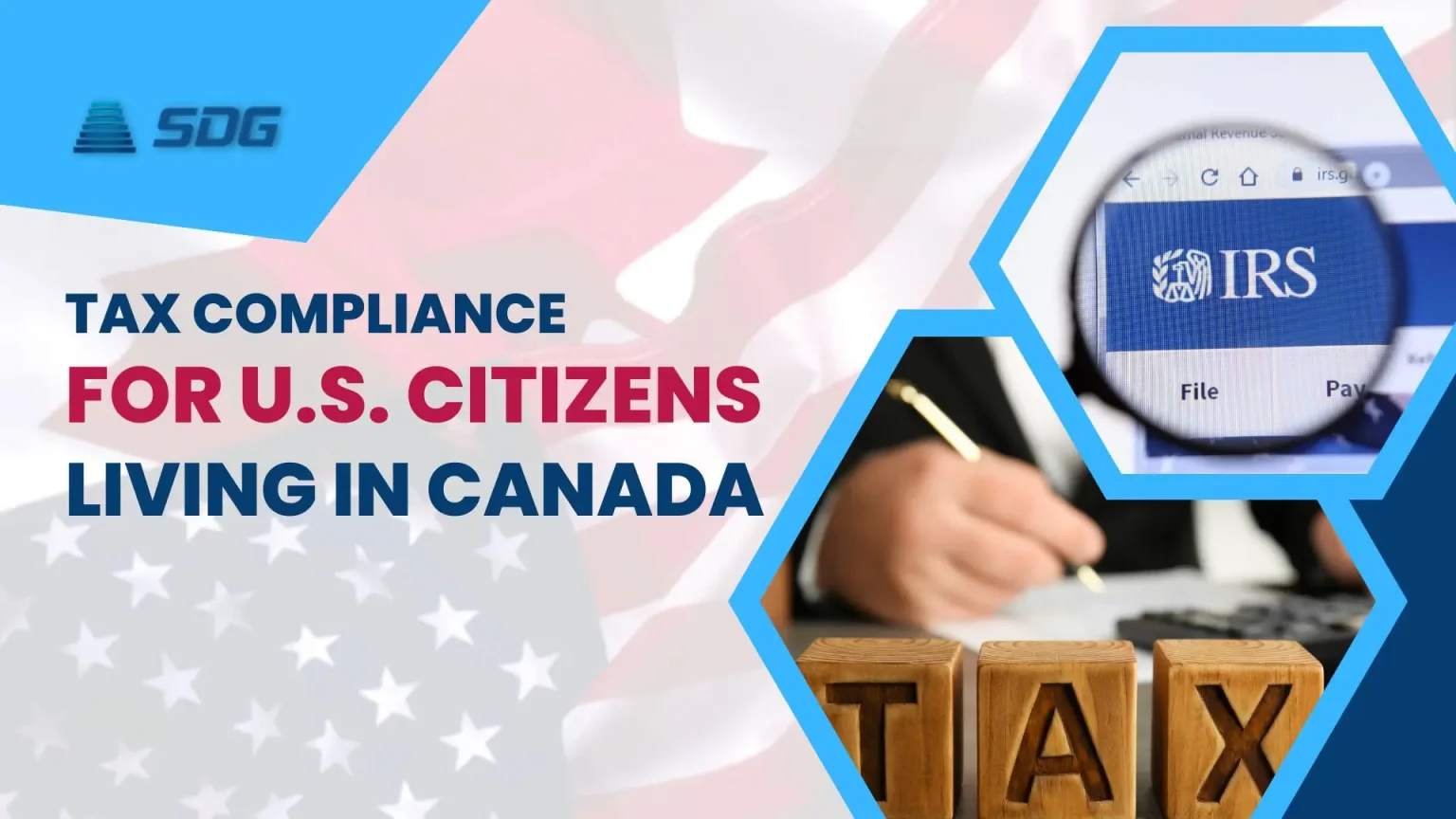
U.S. Citizens or Green card Holders in Canada
What is the Difference Between US Citizens and Green Card Holders When it Comes to Taxes? When it comes to filing federal taxes, there is

As a U.S. citizen or permanent resident living in Canada, you face a unique set of tax obligations that require careful attention and expert guidance. The tax systems in the United States and Canada are different, and managing your tax compliance can be complex. At SDG Accountant, with offices in Toronto and Miami, we specialize in assisting U.S. citizens and green card holders to navigate the intricacies of dual tax filings and ensure they remain compliant with both U.S. and Canadian tax laws. As Enrolled Agents (EAs) and Canadian CPAs, we are fully equipped to support you in optimizing your tax filings and minimizing liabilities.
In this blog, we’ll walk through the key challenges U.S. citizens face when living in Canada, particularly around how Canadian investments are treated by the IRS, and offer solutions based on the latest tax laws and regulations.
Most countries operate on a straightforward system where individuals pay taxes on income earned within that country. However, the U.S. has a unique tax regime that requires U.S. citizens and permanent residents (green card holders) to file annual tax returns regardless of where they live. This means that if you’re a U.S. citizen living in Canada, you must file tax returns with both the Canada Revenue Agency (CRA) and the Internal Revenue Service (IRS).

This requirement for dual tax filing can create a complex and often costly administrative burden. Fortunately, the U.S.-Canada tax treaty aims to alleviate the risk of double taxation by allowing for a foreign tax credit—meaning the taxes you pay in Canada can be used to offset taxes owed in the U.S. However, many popular Canadian investment vehicles can complicate this process. Let’s dive into some of the most common Canadian investments and their associated U.S. tax implications.

What is the Difference Between US Citizens and Green Card Holders When it Comes to Taxes? When it comes to filing federal taxes, there is
For U.S. citizens residing in Canada, Registered Retirement Savings Plan (RRSP) contributions are treated differently under U.S. tax law. While RRSP contributions are deductible on your Canadian tax return, they are not deductible on your U.S. tax return, which can create a mismatch between your Canadian and U.S. filings. This results in a foreign tax credit reduction for U.S. tax purposes, potentially leading to additional U.S. tax liabilities.
Moreover, when you withdraw from your RRSP in retirement, the U.S. taxes these withdrawals as ordinary income. Since Canadian tax rates are typically higher than U.S. rates, the foreign tax credit may not fully offset the U.S. tax liability, especially if there are significant withdrawals.
The Tax-Free Savings Account (TFSA) is a popular investment vehicle in Canada, allowing Canadians to earn tax-free investment income. However, the U.S. does not recognize TFSAs as tax-exempt accounts. From a U.S. tax perspective, the IRS requires you to report the income and gains from these accounts on your U.S. tax return annually.
In addition, TFSAs are classified as foreign grantor trusts by the IRS, which means U.S. taxpayers must file Form 3520 and Form 3520-A to report the activity in these accounts. Failure to comply with these reporting requirements can result in substantial penalties—up to $10,000 per instance of non-compliance. The administrative cost of filing these forms often outweighs the benefits of holding a TFSA, so it’s crucial to carefully consider whether this account structure is suitable for U.S. taxpayers.
Similar to TFSAs, Registered Education Savings Plans (RESPs) are tax-deferred investment accounts used to save for a child’s education in Canada. However, from a U.S. tax standpoint, RESPs must also be reported on your U.S. tax return. This creates additional complexity, as U.S. taxpayers need to file Form 3520 annually to disclose the income and distributions from the account.
Canadian mutual funds are another common investment for U.S. citizens living in Canada. However, these funds often fall under the classification of Passive Foreign Investment Companies (PFICs) under U.S. tax law. PFICs are subject to specific IRS reporting requirements, and U.S. taxpayers who hold shares in these funds must file Form 8621 annually.

PFIC distributions are subject to a high tax rate, and U.S. taxpayers must track excess distributions, which can further complicate tax filings. While the qualified electing fund (QEF) and mark-to-market (MTM) elections can be used to reduce tax burdens, these options are often not feasible with Canadian mutual funds due to the lack of necessary reporting information or marketability. Failure to comply with these requirements can lead to an IRS audit.
As tax laws in both the U.S. and Canada continue to evolve, it’s crucial to stay informed about recent changes that may impact your tax obligations:
Foreign Tax Credit Adjustments:
Recent IRS updates to the foreign tax credit calculations could affect the offset of Canadian taxes against U.S. tax liabilities.

A foreign tax credit is available to any taxpayer who has been a resident of Canada and earned worldwide income at any time during the
Changes to the U.S.-Canada Tax Treaty:
The U.S.-Canada tax treaty includes provisions to help prevent double taxation, but it’s important to consult with a tax professional to fully leverage these benefits.
FATCA Compliance:
FATCA continues to impose strict reporting obligations for U.S. citizens with foreign financial accounts. Canadians with bank accounts in Canada must ensure they meet these reporting requirements to avoid penalties.
At SDG Accountant, we understand the tax complexities U.S. citizens and green card holders face when living in Canada. With offices in both Toronto and Miami, we are uniquely positioned to provide expert guidance on cross-border tax issues. As Enrolled Agents (EAs) and Canadian CPAs, our team is qualified to represent you before both the IRS and the Canada Revenue Agency (CRA), ensuring compliance with tax laws in both countries.
We specialize in navigating dual tax filings, handling complex investment reporting, and providing strategies for minimizing tax liabilities. Whether you are dealing with RRSPs, TFSAs, RESPs, or PFICs, we can help you stay compliant with both U.S. and Canadian tax requirements.
Start Tax PrepIf you’re a U.S. citizen or permanent resident living in Canada, SDG Accountant is here to help. Our team of Enrolled Agents and Canadian CPAs is ready to assist you with comprehensive tax planning, filing, and compliance. With offices in Toronto and Miami, we make it easy to get the expert support you need to navigate U.S.-Canada tax laws and optimize your tax situation.
The information is not intended to constitute professional advice and may not be appropriate for a specific individual or fact situation. It is written by the author solely in their personal capacity and cannot be attributed to the accounting firm with which they are affiliated. It is not intended to constitute professional advice, and neither the author nor the firm with which the author is associated shall accept any liability in respect of any reliance on the information contained herein. Readers should always consult with their professional advisors in respect of their particular situations.
— Sami Ghaith
CPA, CGA, MBA